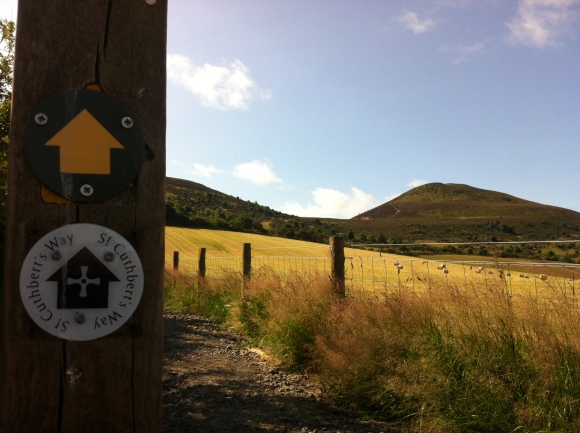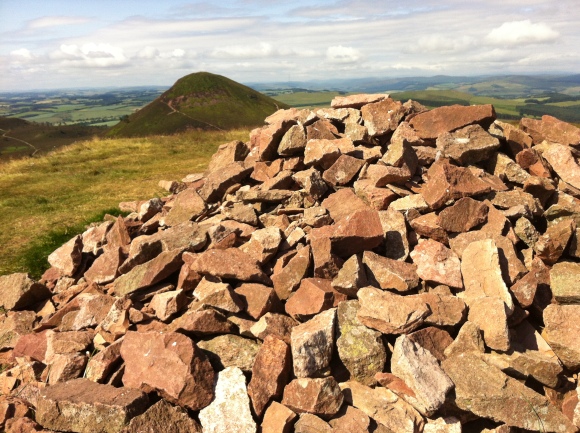Where the long, hot, dusty path finally drops out of the Cheviot Hills into the town of Wooler, Northumberland , every B&B and hotel room is booked. Eventually I manage to get hold of someone at the Youth Hostel. A voice on the other end of the phone answers my by-then desperate plea: “Sure, we have a place.” As if it were a silly question to ask. My room is spartan but fine, and there’s a shower at the end of the hall.
Being a youth hostel, I expected youth. But in the morning I find myself at table with an English man and a Scottish woman of at least my age. Although separated by the length of the table, they are already deep in conversation when I sit, perhaps not wisely, in the middle.
There is a small map on the table between them. The Pennine Way starts here, declares the man, pointing to it. I know; I’ve walked it. You’ve walked some path, corrects the woman. But it wasn’t the Pennine Way. That starts here. She jabs her finger on another spot. I try to find a place for my tea that is not on the disputed piece of paper. Well, I know what I walked says the Englishman. You’re wrong, answers the Scot, and they both lapse into what to me would be charged, but seems to them to be a comfortable, silence. I wonder if they’re a couple.
Edinburgh is a lovely city I volunteer. I was there in 2006. Loved the old town. The Scot answers back crisply. It’s nice to look at. But I grew up there and I’d never move back. They all ask what schools you’ve been to. As if that’s what’s important. First thing they want to know. It’s not a pretty place. She shakes her head as if to rid her mind of some memory. Dark local sandstone, pipes up the English man from his end of the table. That’s what makes Scottish buildings ugly. Northumberland too, he adds after a pause, with a nod to her.
When the Englishman finds out I’m walking the St. Cuthbert Way to study walking pilgrimages, a discussion ensues on the decline of long-distance trail-walking in England. Foot and mouth disease, he pronounces. That’s what killed it. Ever since then the trails are less busy. And the hostel movement has suffered too. The Scot nods. Yes, foot and mouth. It’s a pity. We need the social movement of hostels more than ever in this world.
This world, the Englishman repeats, with feeling. As if that says it all.
I tell them about the World War II vintage bomber that surprised me in the hills, coming up out of nowhere and then gone again as I struggled to pull out my camera. Was that the ghost bomber, asks the Scot? There’s silence for about 30 seconds while I try to digest the question. Umm. It was real enough, I say finally. Loud and low. Just not what I was expecting, you know, in a long day of walking by myself. Oh yes, those low flying fighters, says the Englishman, looking up from his book. They’re over you before you even hear the sound. Scares the hell out of the wildlife. No, I heard this one, I insist. The fighters – I’ve seen those too, the last couple days. RAF. This was different. Some hobby pilot I guess. It was an old prop plane. It came around the hill and banked right above me. By the time I got my camera it had flown over the next hill. It was beautiful.
The ghost bomber repeats the Scot. I was in the Cheviots, the summer before last, and I saw it then. Passed right over me, low. I never heard a thing. Just saw it. That’s when I knew it was a ghost.
The Englishman looks down at his tea and says nothing. I start thinking about the trail ahead. Can you pass the marmalade, I ask?

